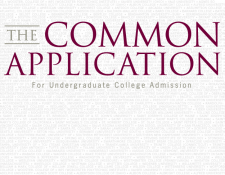Juniors: Schedule At Least One Interview This Spring
Posted on Wed, 02/20/2013 - 11:18
Juniors, we recommend you do at least one interview, if possible, in the spring of junior year in high school. As you visit colleges over spring break, go through the process of interviewing or if there is a college near where you live, schedule an interview there if offered.
You should not interview at your first- choice college at this time. Save the most important interviews— those at schools high on your list— for over the summer or early in senior year. But you can get a sense of what an interview is like only by doing one and it’s better to feel more comfortable with the process before senior year. Check the website of every school on your list to see when the admission office begins interviewing prospective students. Each college has its own policy. Some colleges do not interview students before the senior year while others will interview juniors beginning in spring of junior year.
For more information about interviews, including admission office etiquette and questions to ask, see Chapter 11, “College Interviews” in College Admission: From Application to Acceptance, Step by Step.















